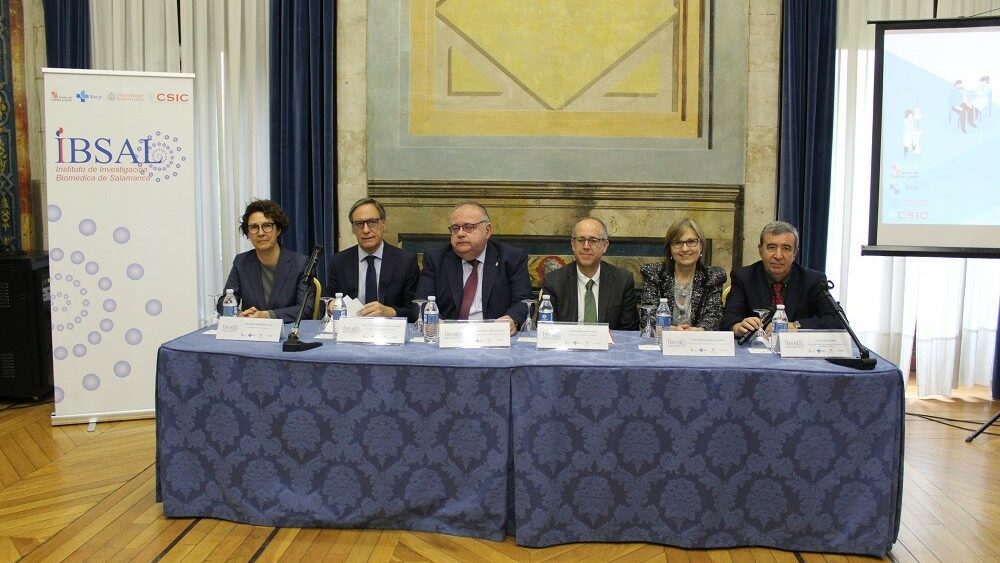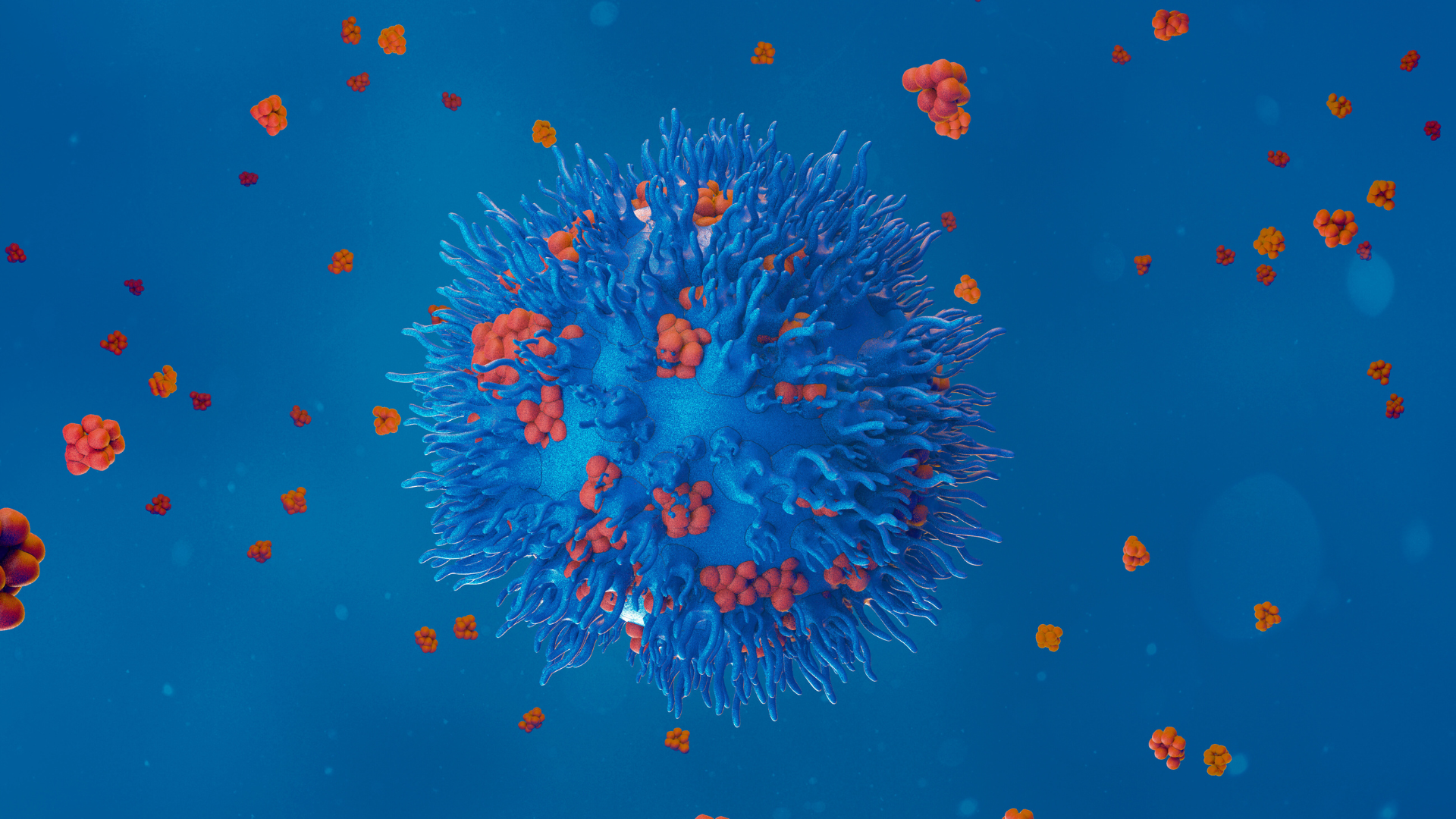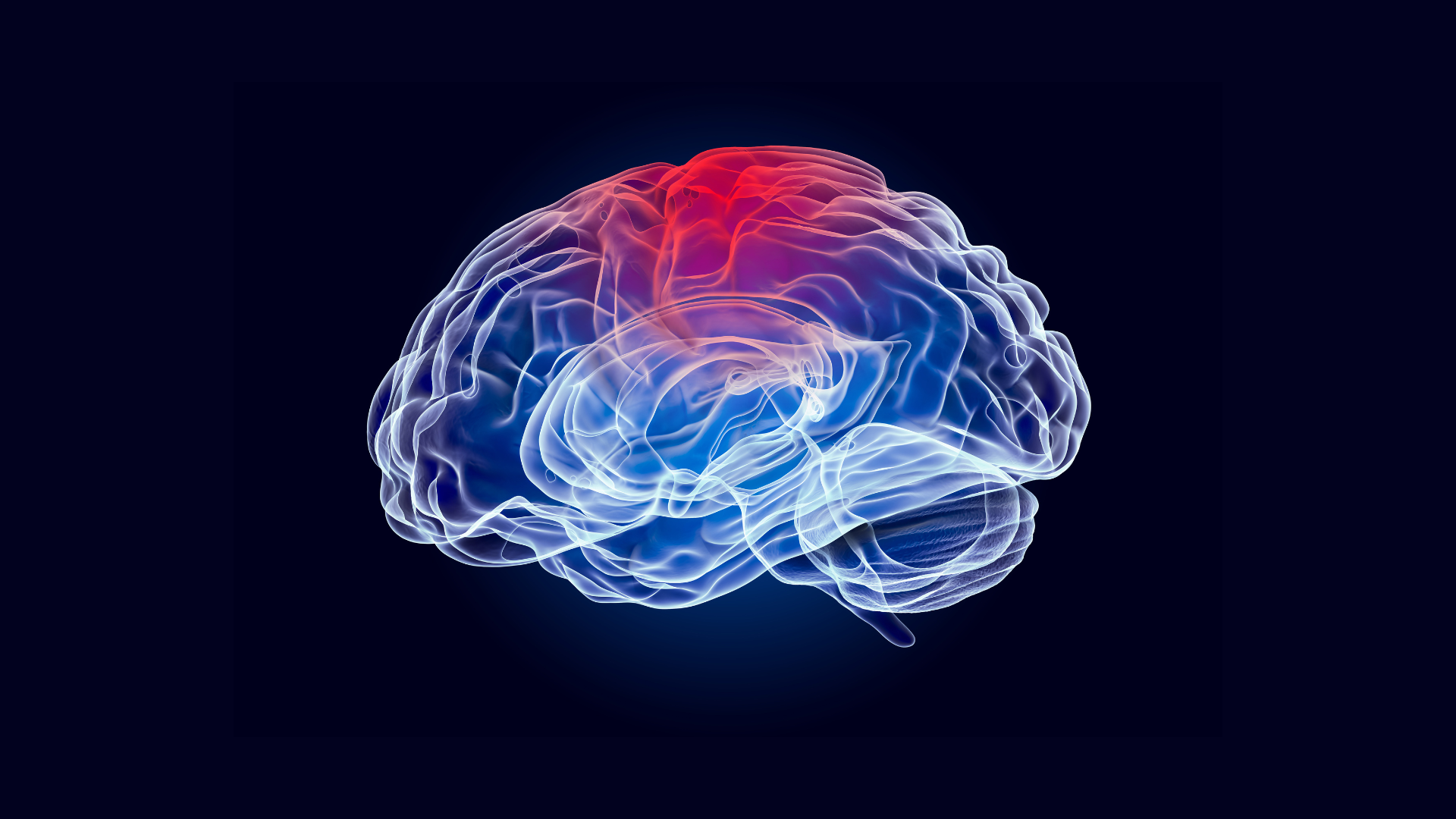The Minister of Health, who inaugurated the first edition of this meeting on Innovation, Translation and Transfer in Health, assures that “the reaccreditation of the Institute consolidates it as a structure of excellence in the national network thanks to the efforts of all” and asks to continue working for this effective transfer of results to clinical practice and to the business network.
The scientific director of the Institute of Biomedical Research of Salamanca, who also congratulates the whole team for the new ISCIII endorsement, assures that the new tool will boost the coordination and capabilities of researchers, and shows his willingness to turn this course into an international reference to disseminate successful initiatives.
The Minister of Health of the Junta de Castilla y León, Alejandro Vázquez, has congratulated the scientific community and the management team of the Institute of Biomedical Research of Salamanca (IBSAL) for the “excellent results obtained in its reaccreditation process” by the Carlos III Institute of Health (ISCIII), which “demonstrates a more than remarkable evolution that consolidates it as a structure of excellence within the national network of accredited institutes thanks to the work and effort of all”.
During the inauguration of the I Course on Innovation, Translation and Transfer in HealthcareHe praised the dual objective of the meeting as a catalyst “to ensure that research reaches the clinical setting as soon as possible and that patients benefit from its application”, but also so that “this knowledge, properly worked” is transformed into “products and services” that boost the business fabric of the community.
Castilla y León is considered by the European Union as a “moderate innovative agent on the rise”, thanks to its “excellent scientific results”, and the objective, according to the minister, is to continue to deepen “the translation of research to transform our community”.
It is precisely with this in mind that this I Innovation Course that will be maintained over time to make it “national and international benchmark” as a forum for disseminating successful research initiatives. in translation of results, as highlighted by the scientific director of the IBSAL, Dr. Luis García OrtizHe also thanked all the entities that form part of the Institute – the Ministry of Health of the Castilla y León Regional Government, the University of Salamanca (USAL) and the Higher Council for Scientific Research (CSIC) – for “their decisive support” in obtaining reaccreditation for the next five years, as well as “the guidance we are receiving from the ISCIII” to continue on the path of excellence in research.
To this end, Dr. García Ortiz also highlighted the launch of the new I.T. SAL platform to organize all the Institute’s activity around innovation and transfer, and to improve the coordination of the “capacities and wills” of research activity.
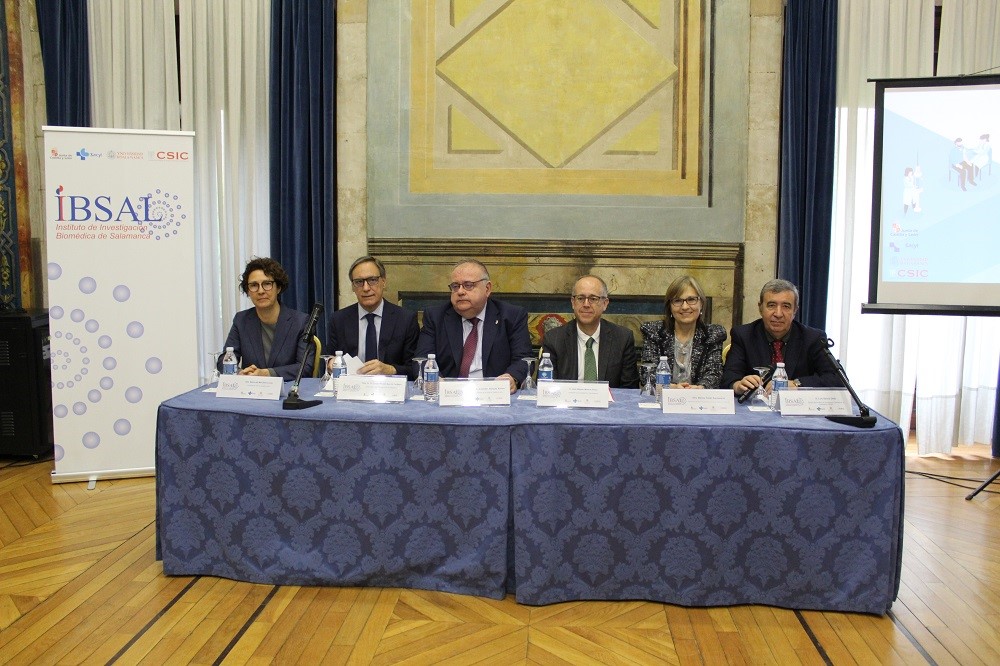
Mar Siles, Carlos García Carbayo, Alejandro Vázquez, José Miguel Mateos Roco, Marina Pollán, and Luis García Ortiz.
Institutional collaboration
At the opening of this meeting, which brought together numerous experts at the Colegio Arzobispo Fonseca to promote the exchange of knowledge, Mar Siles, delegate of the CSIC in Castilla y León, praised the “good harmony between the institutions that make up the IBSAL”, which has led to the recent reaccreditation that allows it to continue to consolidate as “the space that integrates the strengths of researchers from the USAL primary care, the hospital and the CSIC”. “Research in biomedicine today is the medicine of tomorrow, so this course is essential for the knowledge to reach the clinical reality and the development of new therapies as soon as possible,” added Mar Siles.
For her part, Marina Pollán, Director General of the ISCIII, highlighted the importance of collaboration between institutions with the overall objective of improving the health of the entire Spanish population. “Not only do we fund research, but we also create structures to structure this research in our country, so that no one is left out. It is a driving force for change within the system and it has to be truly applied, so that it can be translated into therapies and improvements for patients. We have more than 500 research groups and it is important to work in a network and that each one contributes what the other does not have,” he said.
She also congratulated the IBSAL for its reaccreditation, which was precisely discussed at her first meeting of the accreditation committee of institutes as director of the ISCIII, for which she felt “especially proud”, since it was at the University of Salamanca where she studied and took her first steps as a researcher.
Likewise, Carlos García Carbayo, Mayor of Salamanca, showed his “pride” in a city that is committed to scientific talent, as demonstrated “in this course and in the new I.T. SAL platform, a project that is the result of the inter-administrative collaboration that is giving us such good results”. He highlighted the role of the City Council in making the city “an international benchmark in health and scientific advances”, with important projects such as the Talent Attraction Program, immersion scholarships, training programs in new technologies or the future technological district.
From the University of Salamanca, José Miguel Mateos Roco, Vice-Rector for Research and Transfer, also insisted on the need for “collaboration between institutions, companies and hospitals so that research has an impact on society”. From the university level, the Vice-Rector, who will repeat in the post during the new rector’s term of office, assured that bio-health research will be promoted and support will be strengthened to gain access to national calls for proposals.
I.T.SAL Platform
During this meeting, the launching of the new I.T. SALT platform took place. I.T. SAL platform platform to facilitate and accelerate the real application of the biosanitary research carried out at the Institute. The aim of this initiative, presented by the Institute’s Innovation Coordinator, Dr. Jesús Bermejo, is to bring basic research closer to the clinic, and vice versa, helping researchers to protect the results obtained, as well as offering an initial channel for commercializing the products derived from their work.
“We have to be attentive to what happens in the hospital and in Primary Care, they are the ones who know the problems that patients have and we are going to promote their activity, but we are also going to explain to them the technologies available at the IBSAL so that they can take advantage of them,” said Bermejo.
Other objectives include enhancing prognostic and predictive enrichment in clinical trials, expanding the patent portfolio, boosting commercialization and improving synergies between researchers and companies.
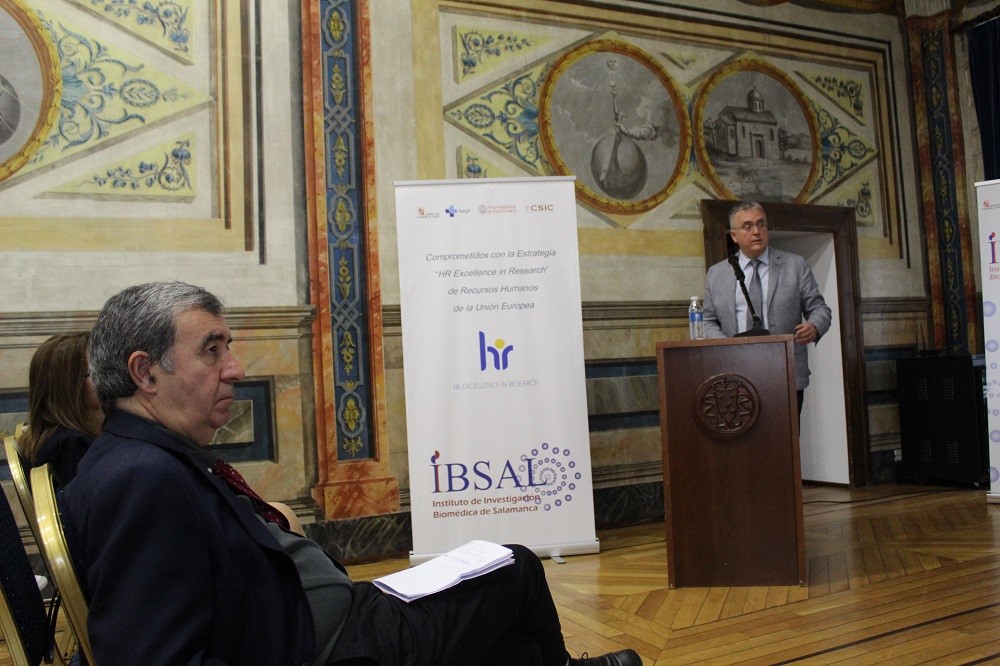
Jesús Bermejo presents the I.T. SAL platform under the watchful eye of the scientific director of IBSAL.
During the first round table of presentations, moderated by Dr. Aránzazu Tabernero Urbieta, Deputy Director of the Institute of Neurosciences of Castilla y León (INCYL), Pedro Redondo Cardeña, from the Directorate General for Health Planning, Research and Innovation of the regional government, also presented the actions to promote innovation included in the Strategic Plan of the Regional Government of Castilla y León.
Juan Luque Moruno, head of the technological development platform of the CIBER, spoke about support as a key tool for valorization and transfer. In addition, Dr. Lluis Blanch Torra, coordinator of ITEMAS, highlighted the role played by this ISCIII network to boost the real transfer of results and which has served as a basis for the implementation of I.T. SAL.
A second round table, moderated by Dr. Jesús Bermejo, dealt with the strategy for the protection of innovations and intellectual and industrial property registrations, with contributions from Miguel Martínez, from the industrial property agency HOFFMANN EITLE.
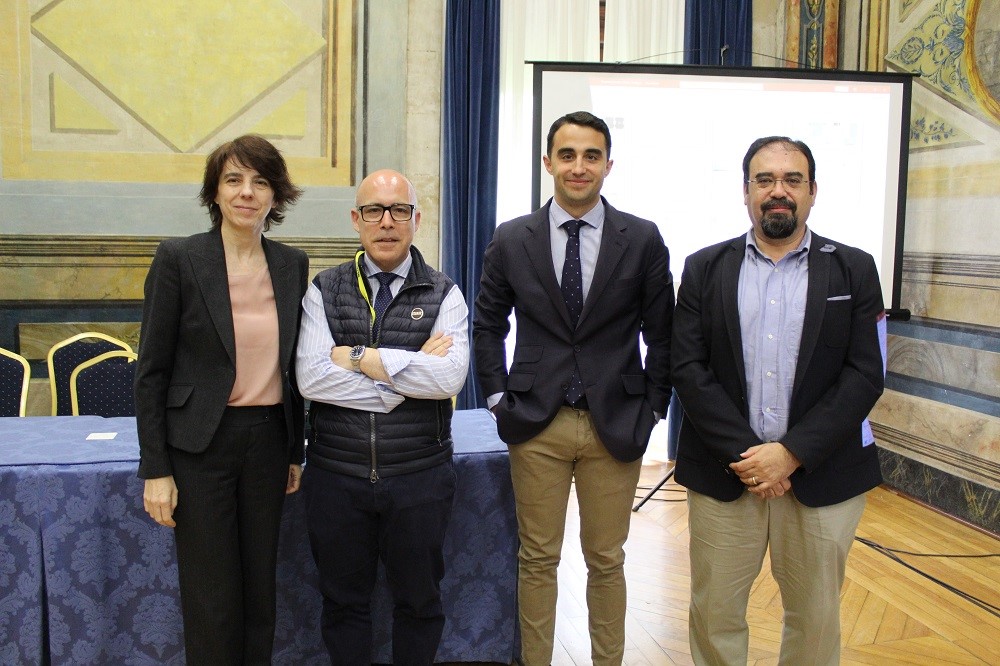
María Isidoro, Fermín Sánchez-Guijo, Armando Oterino and Manuel Fuentes.
Next, researchers from the IBSAL presented several examples of success in the translation and transfer of research results. The cardiologist Armando Oterino explained the expert system in dyslipidemias developed at the Hospital de Salamanca, while the Dr. Maria Isidoro has addressed therapeutic guidance based on artificial intelligence tools through the 5SPM pharmacogenetic model.
Dr. Fermín Sánchez-Guijo spoke about the current situation and the challenges of applied research and the production of advanced therapy drugs in our environment, and finally, Dr. Manuel Fuentes García focused on nanomedicine and functional proteomics for biomarkers and new drugs.
Prior to the closing of the course by Sonia Martín Pérez, Director General of Health Planning, Research and Innovation of the Junta de Castilla y León (Regional Government of Castile and León), the Dr. Laura Lechuga from the Catalan Institute of Nanoscience and Nanotechnology and National Research Award 2020, has given a lecture on Point-of-Care biosensor devices for decentralized diagnostics.
The IBSAL
The Institute of Biomedical Research of Salamanca (IBSAL) was established on March 21, 2011 through an agreement signed by the Ministry of Health of the Regional Government of Castilla y León and the University of Salamanca, which was joined in February 2012 by the Spanish National Research Council (CSIC). It integrates and coordinates the biosanitary research carried out at the University Hospital of Salamanca, the Primary Care Management of Salamanca and the biosanitary area of the University of Salamanca, including the Institute of Neurosciences of Castilla y León and the Institute of Molecular and Cellular Biology of Cancer.
Its scientific activity is structured in six areas, with a total of 84 research groups: Cancer (23 groups); Cardiovascular, renal and respiratory (11); Neurosciences (12); Infectious, Inflammatory and Metabolic Diseases (17); Gene and Cell Therapy and Transplants (6) and Primary Care, Public Health and Pharmacology (15).
More information and contact: comunicacion@ibsal.es
